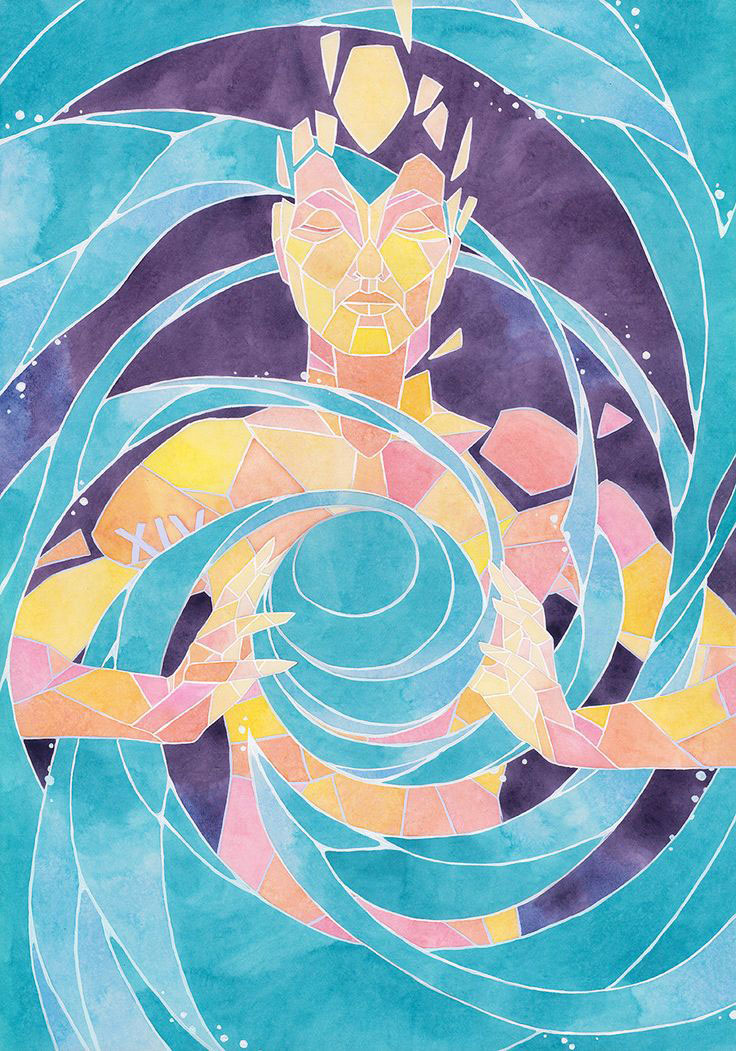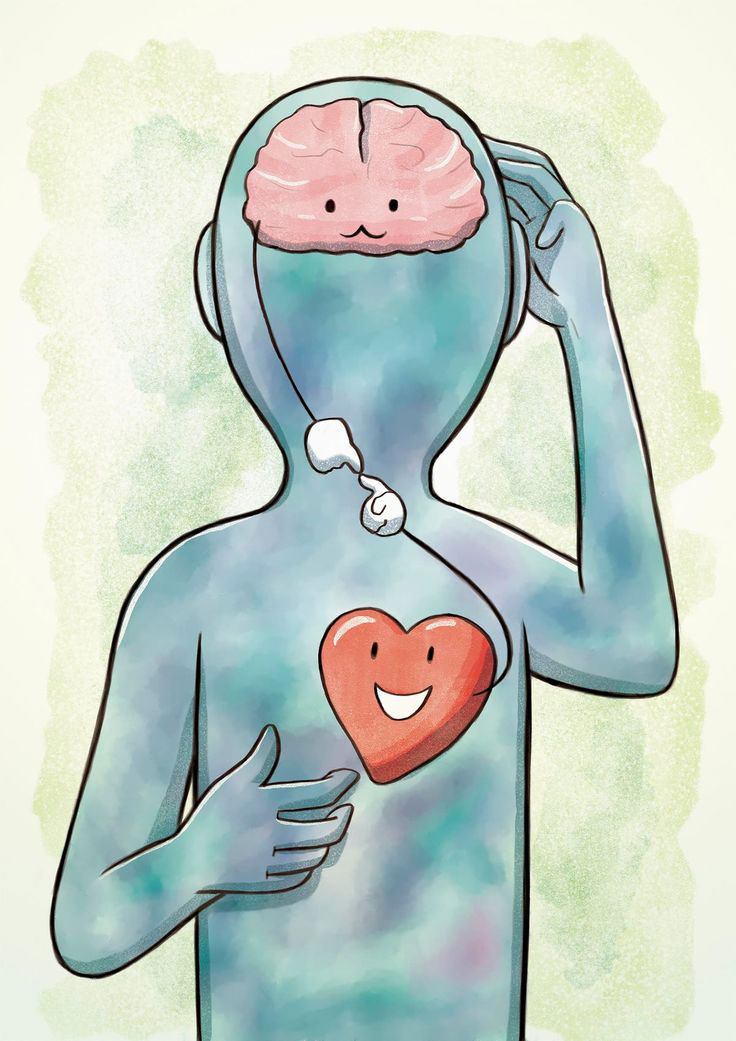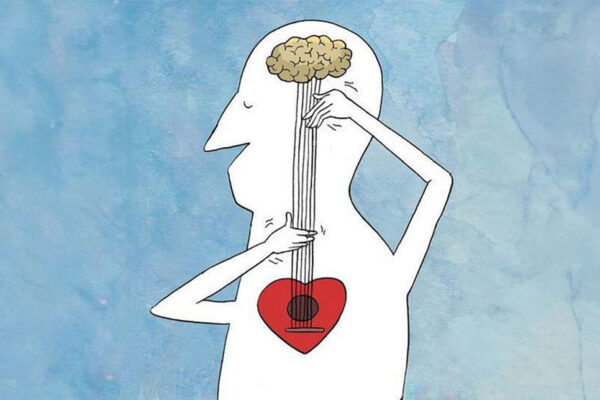
12 Keys to Intuition’s Flow
What is intuition?

Intuition: The Elusive Inner Knower
Intuition, that elusive sixth sense, has intrigued humanity for centuries. We’ve all experienced its whispers – a sudden hunch, a gut feeling, an inexplicable knowing that guides us through life’s choices. But what is intuition, really? Where does it come from, and how can we harness its power?
Unlike logical reasoning, intuition operates beneath the surface of conscious awareness. It’s a complex tapestry woven from years of accumulated knowledge, emotional intelligence, and unconscious processing. Our brains, like vast icebergs, hold an unseen depth where this inner guide resides. In this hidden realm, our experiences, emotions, and subtle cues are processed, forming insights that rise to our conscious awareness as hunches, gut feelings, and intuitive nudges.
This inner guide transcends the limitations of logic. It operates holistically, grasping the essence of a situation rather than focusing on isolated details. It recognizes patterns and connections, even the seemingly insignificant ones, allowing us to anticipate future events and make informed decisions.
Developing your intuition is not about chasing a mystical power, but rather about cultivating a deeper connection with your inner wisdom. This journey begins with self-awareness: practicing mindfulness, paying attention to your emotions, trusting your gut feelings, and reflecting on your experiences. With each step, you strengthen your inner guide and unlock a powerful guide for navigating life’s challenges and embracing a more fulfilling path.
So, what is intuition? It is the inner voice, the whisper of wisdom, the guide that lies within us all. Embrace the mystery, explore its depths, and discover the power it holds in shaping your life.
How does intuition work?
Intuition defies simple definition. It’s a complex phenomenon encompassing unconscious processing, emotional responses, and a deep understanding of patterns and connections. Unlike logical reasoning, this inner guide operates outside conscious awareness, offering immediate insights without the need for step-by-step analysis.
Think of your brain as an iceberg. Your conscious mind is the visible tip, while the vast, submerged portion represents your unconscious. This inner guide arises from these hidden depths, where years of experience, accumulated knowledge, and emotional intelligence mingle.
Here are some key aspects of intuition:
- Unconscious Processing: Our brains are tireless information processors, constantly churning through a sea of data, even when we’re unaware. This hidden processing power forms the foundation of intuition, where years of accumulated knowledge and experiences are distilled into wisdom.
- Emotional Intelligence: Our ability to understand and interpret emotions, both our own and others, plays a vital role in intuition. By recognizing subtle emotional undercurrents, we gain valuable insights that logic alone cannot provide. This emotional intelligence allows us to make informed decisions based on the intuitive whispers of our hearts.
- Pattern Recognition: Humans are masters at identifying patterns and connections, even seemingly insignificant ones. This ability forms a crucial component of intuition, allowing us to draw parallels between past experiences and present situations. By connecting these dots, we can anticipate future events and make informed choices based on intuitive insights.
- Holistic Understanding: Intuition transcends the limitations of logic’s narrow focus. It operates holistically, taking into account the bigger picture: the context, the emotional landscape, and the potential consequences of our actions. This holistic understanding allows us to make decisions that are more balanced and effective in the long run.
- Non-Linear Thinking: Unlike the structured approach of logic, this inner guide operates more fluidly. It leaps across seemingly unrelated concepts, making connections and forming insights in unexpected ways. This non-linear thinking allows us to arrive at intuitive conclusions quickly and efficiently, even without a clear explanation for how we reached them.
This inner guide remains an intriguing puzzle, its inner workings still partly veiled. Yet, by understanding the key factors that contribute to its formation, we gain a deeper appreciation for this powerful tool that guides us through life’s uncertainties. It is a reminder that within the depths of our unconscious lies a well of wisdom, waiting to be tapped into.
How can I develop my intuition?

Unlock the Inner Compass: Cultivating Powerful Intuition
This inner guide, that elusive inner knowing, is a powerful tool guiding us through life’s choices. But how can we tap into this hidden reservoir of wisdom and develop it further? Here are some practices to help you unlock your intuition’s potential:
- Embrace Mindfulness: Stillness fosters clarity. Meditation and mindfulness practices quiet the mind, allowing subtle intuitive whispers to emerge. As you learn to quiet external noise, the inner voice becomes clearer, guiding you with greater clarity.
- Befriend Your Emotions: Emotions are powerful indicators of intuition. Recognize and interpret the messages they convey. Pay attention to gut feelings, sudden hunches, and unexplainable anxieties. These are often intuitive nudges urging you in a specific direction.
- Trust Your Gut: Don’t dismiss your gut feelings as mere whims. This inner guide often speaks in subtle ways, relying on a deeper understanding than logical analysis can provide. Learn to trust these intuitive nudges, even if they seem illogical at first.
- Reflect on Your Journey: Analyze past decisions, noticing where intuition guided you well and where you ignored its warnings. This self-awareness strengthens your trust in your inner knowing and helps you make wiser choices in the future.
- Cultivate Self-Awareness: Pay attention to your body’s signals. Physical sensations like tense shoulders or a fluttering heart can be indicators of intuitive guidance. By becoming more attuned to your body’s language, you can gain valuable insights from within.
- Immerse Yourself in Nature: Nature has a calming and grounding effect, fostering a connection to the intuitive wisdom of the universe. Spending time outdoors, whether walking in the woods or simply sitting in your backyard, can open your mind to subtle intuitive messages.
- Practice Journaling: Journaling allows you to download your thoughts and feelings, uncovering hidden patterns and insights. Reflecting on your experiences and emotions can lead to deeper understanding and connect you to your inner guide.
- Engage Your Senses: Pay attention to subtle cues in your environment. Notice unusual smells, sounds, or sights that seem to stand out. These can be intuitive messages prompting you to pay closer attention to a specific situation or person.
- Dream Analysis: Dreams are often a gateway to our subconscious mind, where this inner guide resides. By remembering your dreams and analyzing their symbolism, you can uncover valuable insights and intuitive guidance.
- Creative Exploration: Engaging in creative activities, such as painting, writing, or dancing, can quiet the logical mind and allow intuitive knowing to flow freely. Embrace your creative spirit and see where this inner guide leads you.
- Practice Gratitude: Cultivating a grateful heart opens your mind to the positive potential in every situation. By appreciating the good in your life, you create space for intuitive guidance to lead you towards further abundance and joy.
- Seek Inspiration: Surround yourself with individuals who embody strong intuition. Observe their behavior and learn from their experiences. This can help you develop trust in your own intuition and encourage you to embrace its guidance.
Remember:
Developing your inner guide is a journey, not a destination. Be patient, practice regularly, and trust the process. As you cultivate a deeper connection with your inner knowing, you’ll unlock a powerful tool for navigating life’s challenges and creating a more fulfilling path.
Does Negative Intuition Exist?
Exploring the Shadow Side of Inner Knowing
This inner guide, often lauded as a guiding light and source of wisdom, is typically associated with positive outcomes. But what about its darker counterpart – negative intuition? Does it exist, or is it simply a manifestation of fear and anxiety?
The concept of negative intuition is a complex one. On one hand, it can be seen as a warning system, alerting us to potential dangers or pitfalls. For example, a sudden feeling of unease about a new acquaintance or a gut feeling that a decision is unwise could be interpreted as negative intuition protecting us from harm.
However, negative intuition can also manifest as negativity bias, leading to distrust, suspicion, and self-doubt. This negativity can distort our perceptions, leading to missed opportunities and unnecessary suffering.
Distinguishing between the two can be challenging. Here are some factors to consider:
- Intensity and Persistence: Negative intuition tends to be intense and persistent, clinging to us even when we try to reason it away. Positive intuitive nudges are often more subtle and fleeting, offering guidance without overwhelming us.
- Emotional Context: Negative intuition often arises from fear, anxiety, or anger, clouding our judgment and making it difficult to see things objectively. Positive intuition, on the other hand, stems from a place of calm and clarity, allowing for a more balanced perspective.
- Outcomes: Negative intuition, when acted upon without careful consideration, can lead to negative consequences. However, positive intuition, when heeded, often leads to positive outcomes or helps us avoid potential harm.
- Holistic Perspective: It’s important to consider all available information, not just our intuition when making decisions. Negative intuition can serve as a valuable warning, but it shouldn’t be the sole basis for our actions.
Ultimately, whether or not we accept the concept of negative intuition is a personal decision. However, it’s important to be aware of its potential dangers and to approach it with caution. By cultivating self-awareness and seeking multiple perspectives, we can learn to distinguish between genuine intuition and negativity that may lead us astray.
Remember, intuition is a powerful tool, but like any tool, it can be used for good or ill. By honing our skills and understanding the different dimensions of this inner guidance, we can harness its positive power and navigate life’s uncertainties with greater wisdom and clarity.
Untangling the Threads: Distinguishing Intuition from Wishful Thinking

In the realm of our inner guidance, two powerful forces reside intuition and wishful thinking. While both influence our decisions and shape our experiences, their roots and consequences differ significantly. Recognizing these differences is crucial for navigating life’s complexities with clarity and wisdom.
Intuition:
- Origin: Arises from the depths of the subconscious, drawing upon a vast reservoir of accumulated knowledge, experiences, and emotional intelligence.
- Nature: Non-linear and holistic, offering immediate insights that transcend conscious analysis.
- Expression: Manifests as gut feelings, hunches, and sudden knowing without a clear explanation.
- Function: Offers guidance, alerts us to potential dangers, and helps us make decisions based on a deeper understanding of the situation.
Wishful Thinking:
- Origin: Stems from our conscious desires and aspirations, often driven by emotions like hope, fear, or longing.
- Nature: Logic-based, seeking to justify what we wish to be true rather than confronting reality.
- Expression: Takes the form of thoughts, internal dialogues, and rationalizations that support our desired outcomes.
- Function: Provides temporary comfort and satisfaction, but can lead to disappointment and missed opportunities if not grounded in reality.
Distinguishing the Two:
- Focus: Intuition focuses on the “bigger picture,” considering the context, potential consequences, and holistic understanding of the situation. Wishful thinking focuses solely on the desired outcome, often ignoring potential obstacles or conflicting information.
- Clarity: Intuitive nudges are often subtle and fleeting, requiring introspection and quiet to discern. Wishful thinking tends to be loud and persistent, readily offering justifications and rationalizations.
- Emotionality: While this inner guide can arise from emotions, it offers a balanced perspective. Wishful thinking is often fueled by strong emotions like fear or hope, leading to biased interpretations.
- Impact: Intuition helps us make informed decisions and navigate challenges with confidence. Wishful thinking can lead to disappointment, missed opportunities, and difficulty facing reality.
Cultivating Discernment:
- Developing the ability to discern between intuition and wishful thinking requires self-awareness and practice. Here are some helpful tips:
- Practice mindfulness: Quiet the mind and tune into your inner voice. Pay attention to subtle feelings and bodily sensations, as they can offer valuable insights.
- Reflect on your experiences: Analyze past decisions, noting situations where intuition guided you well and instances where wishful thinking led you astray.
- Seek diverse perspectives: Surround yourself with individuals who offer honest feedback and challenge your assumptions. This can help you identify potential biases and blind spots.
- Challenge your thoughts: Question your internal narratives and justifications. Are they based on genuine intuition or simply wishful thinking?
- Embrace reality: Seek objective information and factual evidence to support your decisions. Don’t rely solely on desires or hopes.
Remember, intuition and wishful thinking are not mutually exclusive. They can coexist and even intertwine at times. However, by nurturing self-awareness and developing discernment, we can learn to differentiate between these two inner forces. This newfound clarity empowers us to make wiser choices, navigate life’s complexities with greater confidence, and ultimately, create a life that aligns with our true desires and aspirations.
Signs You’re Ignoring Your Intuition
This inner guide, that inner voice of guidance, whispers wisdom throughout our lives. Yet, amidst the bustle of daily life, we often miss its subtle nudges, leading us down paths we might regret. Recognizing the signs of ignoring your inner guide is crucial for reconnecting with this powerful inner compass and navigating life with greater clarity and fulfillment.
Here are some key signs that you might be silencing the whispers of your intuition:
- Repeated Discomfort: Do you experience a nagging feeling of unease, despite seemingly logical reasons to proceed? Whether it’s a new relationship, a job offer, or a financial decision, persistent discomfort often signifies this inner guide urging you towards caution.
- Unexplained Procrastination: Do you find yourself procrastinating on tasks or decisions, even when the consequences are significant? This persistent delay could indicate your inner guide sensing potential pitfalls or misalignment with your true desires.
- Rationalizing Away Doubts: Do you find yourself constantly rationalizing away doubts and concerns, even when they feel valid? This tendency to dismiss inner warnings can be a sign of suppressing your intuition in favor of logic or external pressures.
- Recurring Negative Patterns: Do you find yourself repeating negative patterns in relationships, career choices, or personal habits? These recurring issues could be your intuition’s way of signaling misalignment and urging you towards a course correction.
- Physical Symptoms: Do you experience physical sensations like headaches, stomachaches, or fatigue when faced with specific decisions or situations? These physical manifestations could be your intuition’s way of alerting you to potential harm or discomfort.
- Difficulty Making Decisions: Do you struggle to make decisions, feeling overwhelmed by conflicting emotions or indecisiveness? This internal struggle could indicate a disconnect between your conscious mind and your intuitive knowing, leading you to feel lost and uncertain.
- Emotional Rollercoaster: Do you experience extreme emotions like anxiety, anger, or frustration in specific situations? These intense reactions might be your intuition’s way of signaling a need to re-evaluate your choices and align with your inner wisdom.
- Feeling Out of Sync: Do you feel disconnected from yourself, your desires, and your purpose? This feeling of misalignment could be a sign that you’re ignoring your inner guide and neglecting the guidance it offers.
- External Pressures: Do you feel pressured by external factors like societal expectations, family demands, or peer pressure to make decisions that contradict your inner knowing? Overlooking your intuition to appease others can lead to regret and dissatisfaction.
- Regretful Choices: Do you often look back on decisions with a sense of regret, realizing you ignored your gut feeling? These instances highlight the importance of listening to your inner guide and trusting its wisdom to guide you towards a more fulfilling path.
Remember, ignoring your inner guide can lead to missed opportunities, unnecessary suffering, and a sense of disconnection from your authentic self. By acknowledging these signs and reconnecting with your inner voice, you can unlock a powerful source of guidance and navigate life with greater clarity, confidence, and fulfillment.
The Elusive Evidence: Exploring Science’s View on Intuition
Intuition, that gut feeling guiding our decisions and shaping our lives, has long been shrouded in mystery. While its existence is evident in countless experiences, science has only recently begun to explore the phenomenon, seeking empirical evidence to support its claims.
The scientific study of intuition is a relatively new and complex field. Traditional scientific methods, designed for measuring and analyzing physical phenomena, often fall short when dealing with the intangible nature of intuition. This has led to skepticism and criticism from some scientific circles, who view this inner guide as a mere product of unconscious bias or cognitive shortcuts.
However, a growing body of research is challenging this skepticism, revealing intriguing insights into the neural and physiological correlates of intuition.
Evidence Supporting Intuition:

- Brain scans: Studies using fMRI and EEG technology have identified specific areas of the brain that activate during intuitive decision-making, suggesting a distinct neurological basis for this phenomenon.
- Heart-brain coherence: Research suggests that a state of coherence between heart and brain activity is associated with enhanced inner guide and decision-making accuracy.
- Implicit learning: Studies have shown that we can unconsciously learn and process information, influencing our decisions and behaviors without conscious awareness. This implicit learning is considered a key factor in intuitive knowing.
- Expert intuition: Studies in various fields, from chess to business, demonstrate that experts often rely on this inner guide as a primary tool for making rapid and accurate decisions in complex situations.
- Emotional intelligence: Research indicates a close link between emotional intelligence and intuition, suggesting that our ability to understand and interpret emotions plays a vital role in intuitive insights.
- Gut feeling studies: Researchers have conducted experiments where individuals showed improved accuracy in guessing outcomes based solely on their gut feelings, suggesting a potential for genuine intuitive knowledge beyond conscious awareness.
Challenges and Limitations:
- Defining intuition: The lack of a precise and universally accepted definition for this inner guide makes it difficult to design and conduct rigorous scientific studies.
- Subjective experience: Intuition is a subjective experience, varying greatly from person to person. This makes it challenging to measure and compare data across different individuals.
- Replicability crisis: Some research on this inner guide has faced challenges with replication, raising concerns about the reliability and validity of findings.
Conclusion:
While the scientific understanding of intuition remains in its early stages, the growing body of evidence suggests that it is more than just wishful thinking or cognitive bias. Studies have identified potential neurological and physiological correlates of intuition, highlighting its role in decision-making and expert performance.
Despite the challenges and limitations, the scientific exploration of this inner guide holds immense potential. As research methodologies evolve and our understanding of the brain continues to deepen, we can expect to gain clearer insights into this fascinating phenomenon. This will ultimately lead to a more comprehensive understanding of human decision-making and the complex interplay between conscious and unconscious processes.
While science continues its investigation, it is important for individuals to cultivate their own awareness of this inner guide and explore its role in their lives. By observing patterns, embracing introspection, and trusting their inner knowing, individuals can unlock the power of intuition as a valuable guide in navigating life’s uncertainties.
———–
Sources:
- Psychology Today articles on intuition
- Greater Good Science Center articles on intuition
- The American Psychological Association website
- The National Center for Complementary and Integrative Health website





Pingback: Reconnecting with an inner compass: 7 methods - Blue Spring
Pingback: 7 forms of soul whispers - Blue Spring